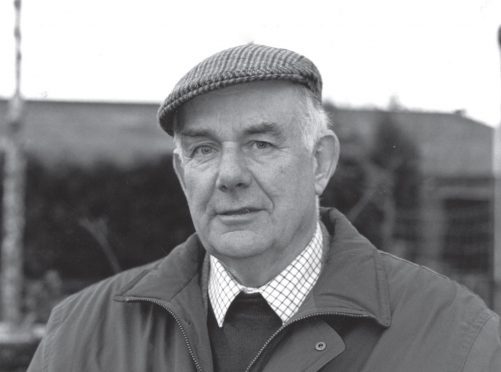Reay Clarke was a man of the land who loved his native hills and woods, but found himself embroiled in one of the world’s most harrowing maritime missions.
After volunteering to join the Navy during the Second World War, he served on the Atlantic Convoys, the operation to keep the Russian Allies supplied with food, tanks, planes and ammunition.
Mr Clarke, then still a teenager, was among the crew of Royal Naval vessels sent to escort the convoys of vulnerable merchant ships making deliveries via a bone-chilling Arctic route.
They contended, not only with appalling weather conditions, but the ever-present threat of enemy aircraft and ruthless wolf packs of submarines.
More than 3000 seamen lost their lives during the hazardous voyages, which were described by Winston Churchill as “the worst journey in the world” and dubbed “suicide missions” by the men.
Mr Clarke served on the destroyer HMS Farndale in convoy PQ18, the first to re-establish the supply route after a disastrous earlier mission when 24 ships were sunk. PQ18, which left in September1942, battled vicious storms and enemy subs but, on his return to Scapa Flow, he was sent to train as an engineer.
He qualified as a motor mechanic and spent the rest of the war with 25th Motor Torpedo Boat Flotilla, Light Coastal Forces in the Far East. He was a petty officer on HMS Braganza at Trombay, near Bombay where he remained until being demobbed in 1946.
Returning home he took over the farm where he was born, at Edderton near Tain in Easter Ross.
Mr Clarke, educated at Tain Royal Academy, Altonburn, Nairn and Trinity College, Glenalmond, had previously helped his widowed mother on the farm early in the war. Now, his life’s work would be concentrated on it and on conserving Highland farmland.
And as chairman of the Easter Ross Land Use Committee, a sub-committee of the National Farmers’ Union (NFU), he contested the Highland land use issue at three public inquiries – into an aluminium smelter, a chemical refinery and a housing project. Though keen on development, his focus was always on land use.
In 1969, he co-wrote a booklet, The Crossing of the Three Firths, which led to a change in the route of the A9 road north of Inverness.
All three bridges promoted by the authors were built and he was invited to drive the first car across the final crossing, over the Dornoch Firth, 22 years later.
He was also vice chairman of the North of Scotland Milk Marketing Board; chairman of the Northern Region of the Royal Scottish Forestry Society; a governor of the North of Scotland College of Agriculture, Aberdeen; and president of the Easter Ross NFU branch.
Edderton Community Council chairman and a lay preacher, he often conducted the local Remembrance Day service and campaigned for veterans to receive an Arctic Convoy medal.
His legacy includes 400 acres of award-winning woodland in Edderton that he planted and tended over six decades and his book, Two Hundred Years of Farming in Sutherland: The Story of My Family, published in 2014.
Clarke, who died at the age of 93, was divorced from his first wife Lydia. Predeceased by his second wife Olga, he is survived by his sons Donald, Hugh and James, daughter Janey, step-children and extended family.
